Our Devotional Practices
Engage in joyful and transformative spiritual practices that purify the heart and awaken love for Krishna. The cornerstone of religious practice within ISKCON is the vibrant and transformative chanting of the Hare Krishna maha-mantra.
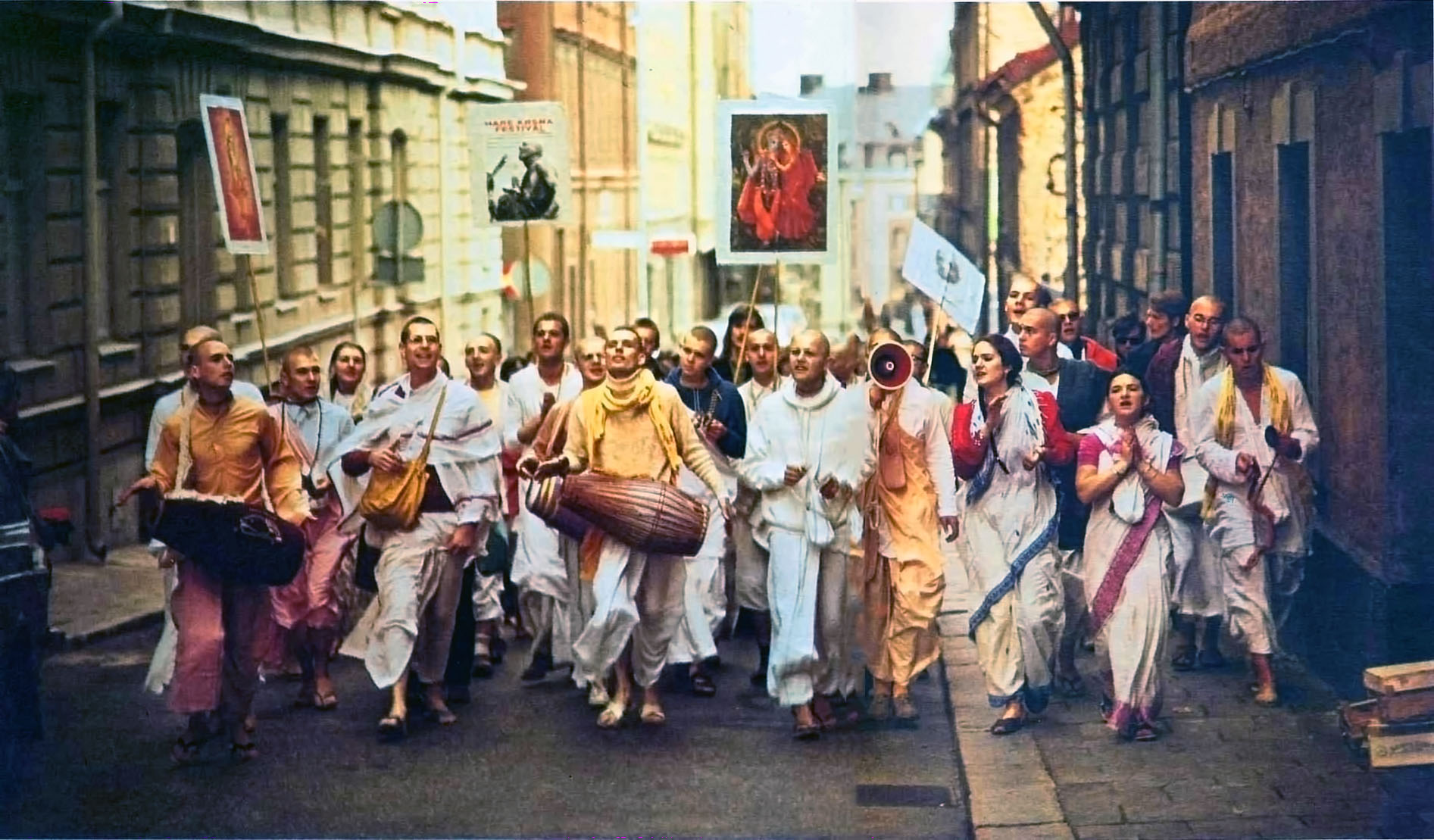
Kirtan: Congregational Chanting
Kirtan is the congregational chanting or singing of the Hare Krishna maha-mantra: "Hare Krishna, Hare Krishna, Krishna Krishna, Hare Hare / Hare Rama, Hare Rama, Rama Rama, Hare Hare." Often accompanied by traditional Indian musical instruments like the harmonium, mridanga drums, and karatalas (hand cymbals), kirtan is a joyful and ecstatic expression of devotion.
Performed both within temple settings and publicly, it serves to uplift participants and introduce the spiritual vibration to newcomers. This sacred sound vibration is considered the most effective means of spiritual purification and liberation in the current age.
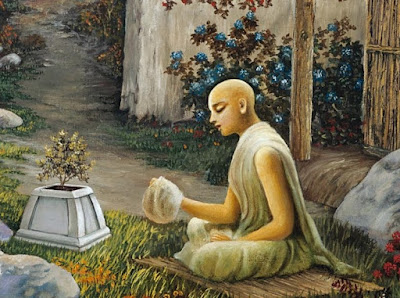
Japa: Meditative Chanting
Japa is a private, meditative practice of chanting the Hare Krishna maha-mantra repeatedly on a string of 108 prayer beads, known as a japamala. This silent or soft chanting is a personal dialogue with the Divine, aimed at focusing the mind and deepening one's relationship with Krishna.
Initiated devotees typically commit to chanting a minimum of 16 rounds of the maha-mantra daily.
Key Devotional Activities & Principles
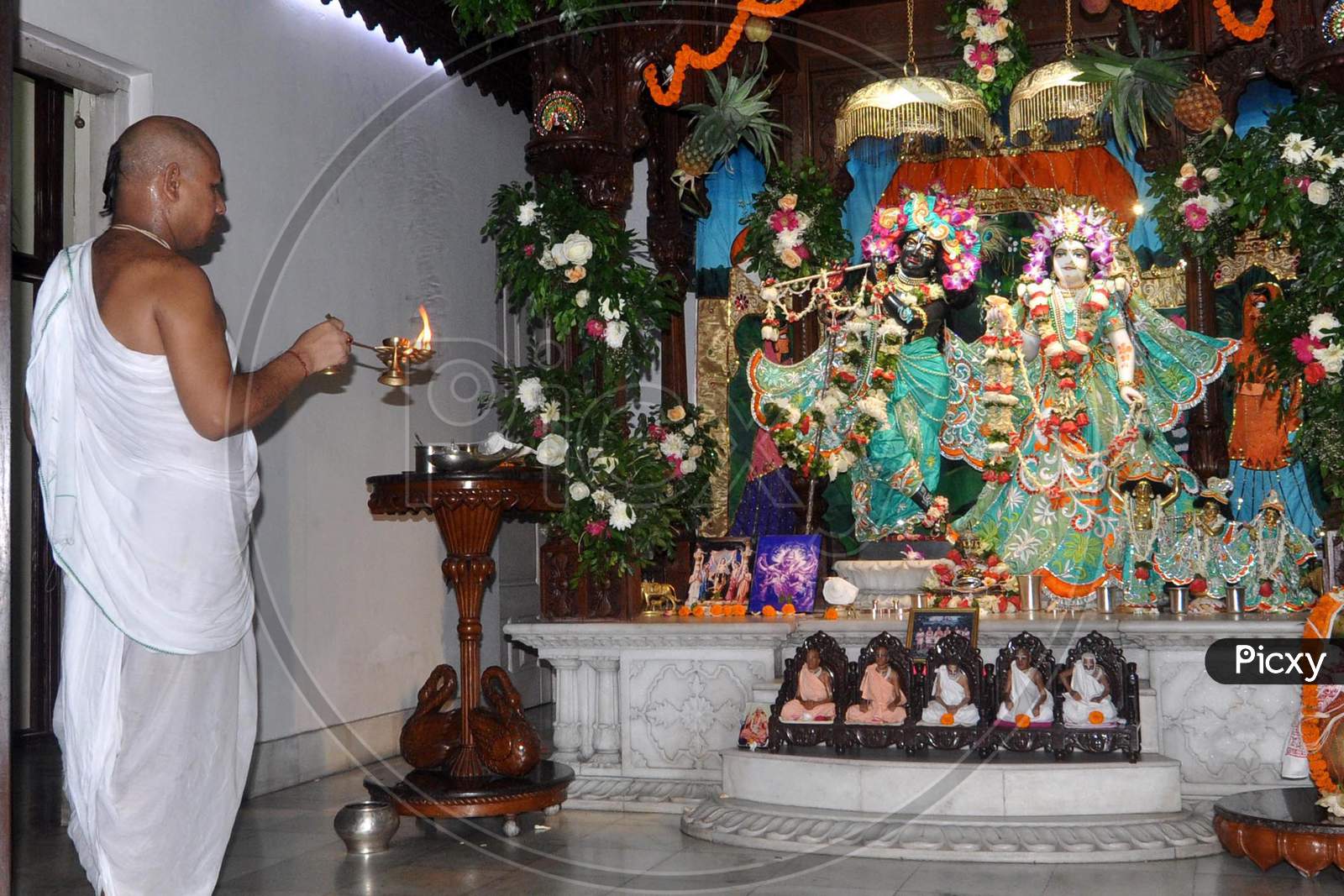
Arati (Puja): Deity Worship
Arati is a daily, elaborate ceremony involving the systematic offering of various items to the murti (sacred statues or images of Krishna) who are considered the personal manifestation of the Lord. These offerings include pure water, incense, a ghee lamp, flowers, a chamara (yak-tail whisk), and a peacock fan.
The ceremony is accompanied by prayers, devotional songs (bhajans), and the ringing of bells. Beyond arati, devotees also bathe, dress, offer cooked food (prasadam), and put the murti to rest daily, treating the deity with utmost reverence and personal care.
Four Regulative Principles
Central to the spiritual discipline of initiated devotees are four vows designed to purify one's life and enhance spiritual progress. These are:
• No meat-eating: Adherence to a strict lacto-vegetarian diet, avoiding all meat, fish, and eggs.
• No intoxication: Abstinence from all alcohol, drugs, tobacco, coffee, and tea.
• No illicit sex: Sexual activity only within marriage and for procreation.
• No gambling: Avoidance of any form of speculative gaming.
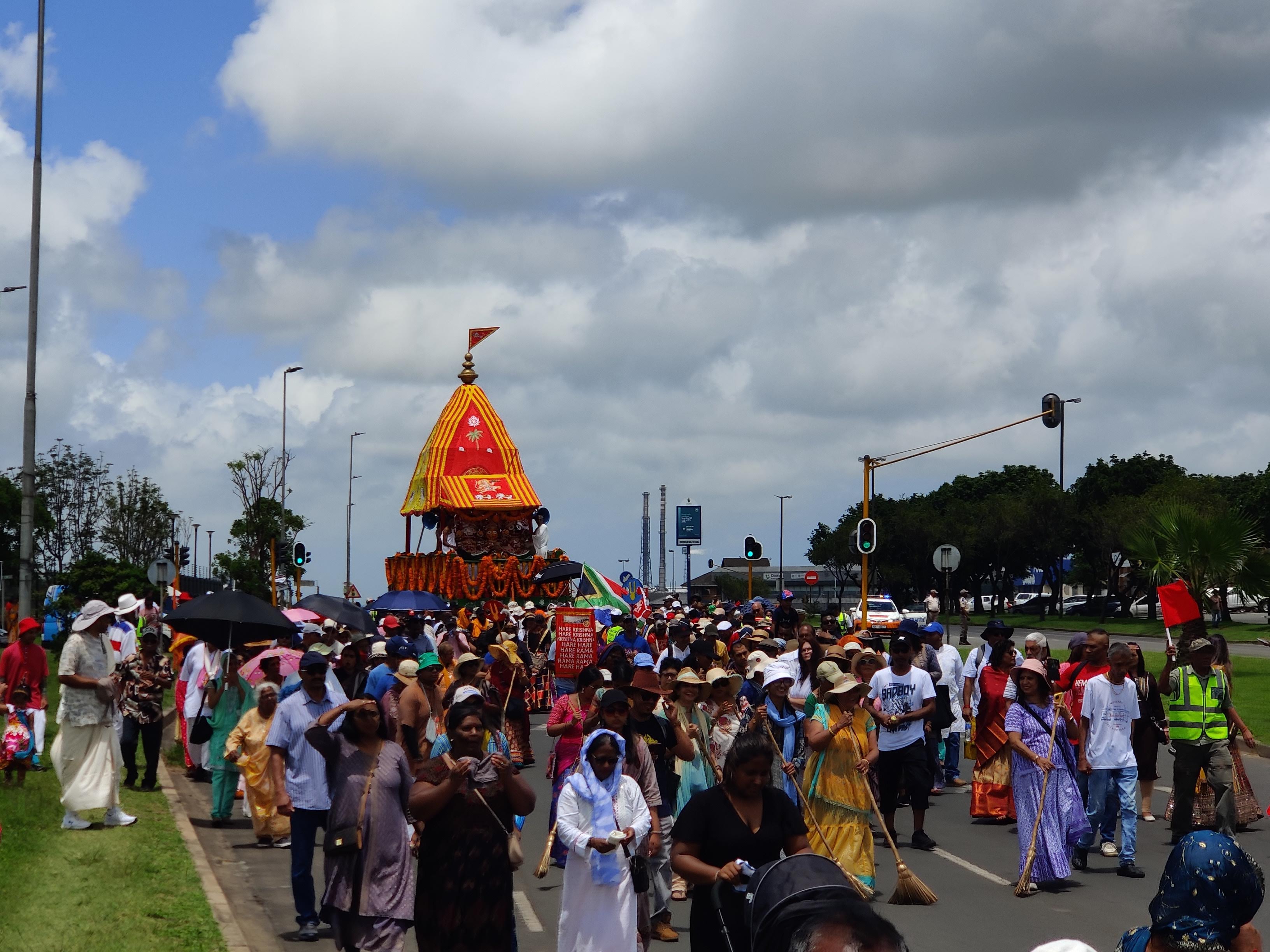
Observing Festivals
ISKCON joyfully celebrates a multitude of vibrant Hindu festivals throughout the year, marking significant events in the lives of Krishna and His pure devotees. Prominent celebrations include Janmashtami (Krishna's Appearance Day), Radhastami (Radharani's Appearance Day), Diwali (Festival of Lights), Gaura Purnima (Lord Chaitanya's Appearance Day), and Ekadasi (a bi-monthly fasting day).
The Ratha Yatra Festival of Chariots is a grand annual public procession where the deities of Jagannath, Baladeva, and Subhadra are pulled on large chariots through the streets, accompanied by ecstatic chanting and dancing.
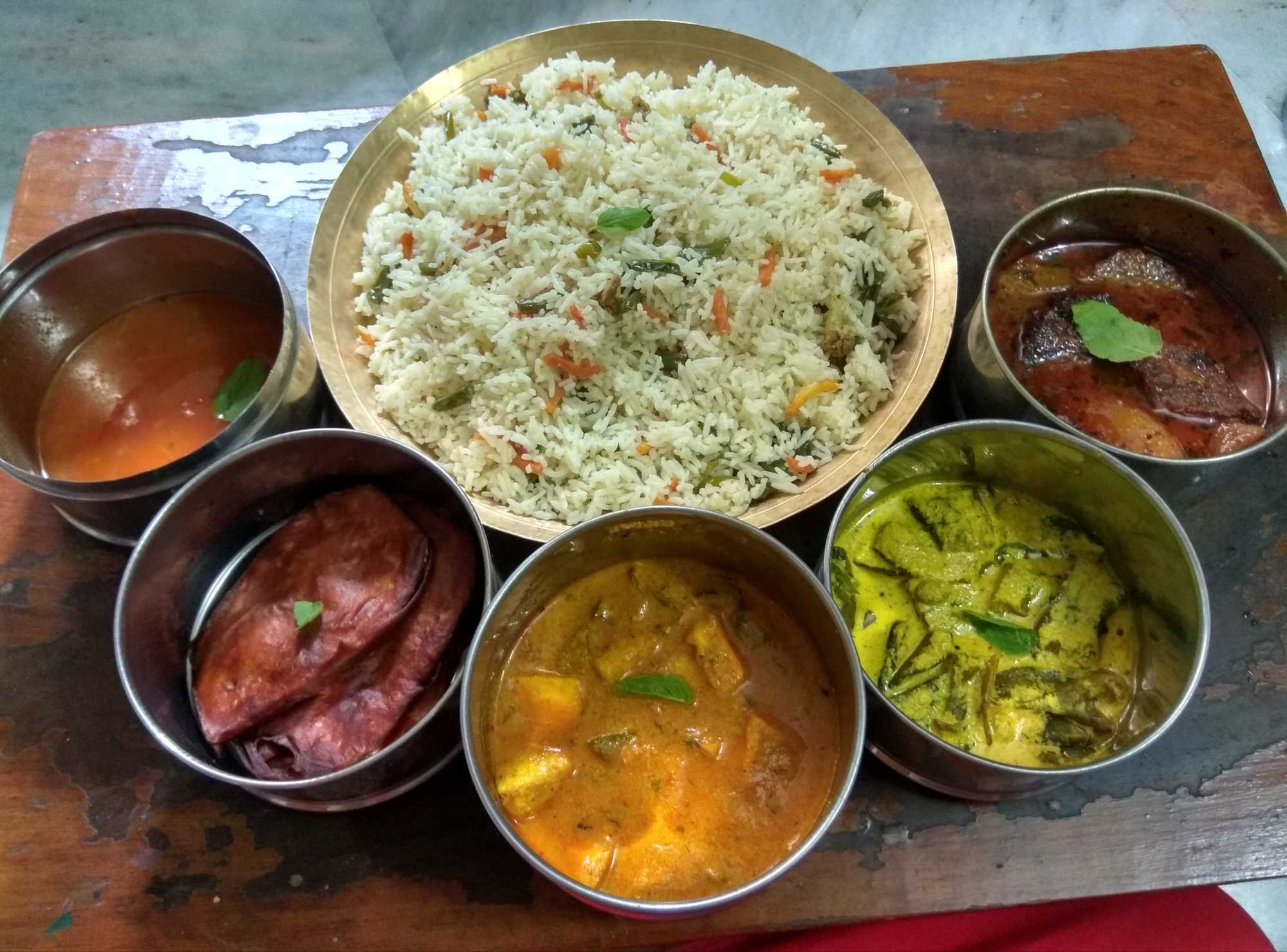
Prasadam: Spiritual Food
Food that has been lovingly prepared and offered to Krishna with devotion is called prasadam, meaning "the mercy of the Lord." This sanctified food is considered spiritual and, when consumed by devotees, is believed to cleanse one from sinful reactions and purify the consciousness.
ISKCON is globally renowned for its Food for Life program, a vast humanitarian initiative that provides millions of free, nutritious vegetarian meals to the needy worldwide, embodying the principle of distributing Krishna's mercy to all.
Scriptural Study
Regular and systematic study of the Vedic scriptures is a vital practice for all devotees. The primary texts are the Bhagavad-gita As It Is (Srila Prabhupada's translation and commentary of Krishna's direct instructions) and the Srimad Bhagavatam (a comprehensive epic on the life and pastimes of Krishna and His devotees).
Devotees attend classes, participate in discussion groups, and engage in personal study to deepen their understanding of spiritual philosophy and principles.
Association with Devotees (Satsanga)
Spending time with like-minded spiritual aspirants provides support, inspiration, and guidance on the path of devotion. This is considered crucial for spiritual progress.
Engaging in Service (Seva)
Volunteering time and energy in various services related to the temple, deity worship, preaching, or community welfare, as an expression of love and devotion.